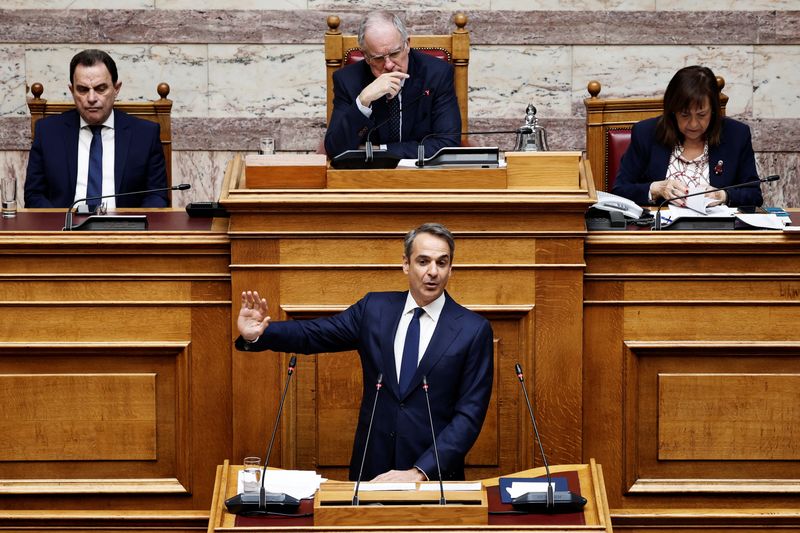
© Reuters. Greek Prime Minister Kyriakos Mitsotakis addresses lawmakers at parliament, ahead of a vote on a bill which allows foreign private universities to set up branches in Greece, in Athens, March 8, 2024. REUTERS/Louiza Vradi
ATHENS (Reuters) -Greek students threw petrol bombs at police who responded with tear gas in central Athens on Friday, hours before parliament was expected to pass legislation that will allow foreign private universities to set up branches in the country.
Thousands of students have been protesting peacefully for weeks against the reform that they say will devalue degrees from public universities, but anger boiled over just as Prime Minister Kyriakos Mitsotakis urged lawmakers to vote the bill through.
“We are scared that … if we do manage to graduate we’ll never be able to get a job anywhere,” said Stratos Katselis, 25. “No young person today can make any kind of plan for the future. All we see are dead ends.”
Mitsotakis, who won a second term in June last year, said the law will help reverse an exodus of tens of thousands of Greek students to universities abroad, a drag on an economy still recovering from a decade-long financial crisis.
The bill will also help align Greece with the rest of the European Union and boost competition in higher education, he said.
The bill is likely to be approved as the conservative government controls 158 lawmakers in the 300-seat legislature.
“Parliament is not only called to vote on a pivotal bill but to approve a radical and courageous education reform for growth and social justice,” Mitsotakis said. “It will finally allow non-state, non-profitable institutions to operate in our country.”
Students, with support from some teachers and university staff, are not convinced. One group broke away from the demonstration and threw petrol bombs at police who dispersed them with tear gas, Reuters witnesses and a police official said.
The bill is part of the government’s reform agenda that also includes a same sex marriage law that was passed last month.
Greece spends 3%-4% of its annual economic output on education, below the EU average. But Mitsotakis said the bill stipulated increased funding for state universities.
Source: Investing.com


























